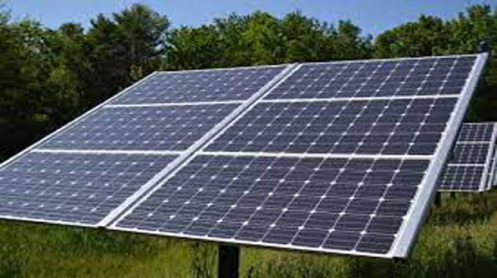- Neelofur Hafeez, Joint Secretary (LED), MoI&P briefs about decisions taken in 5th meeting of the Apex Committee of the SIFC
ISLAMABAD: An inter-ministerial meeting has decided to convene a meeting with local manufacturers of solar panels, glass, inverters, etc., to identify the policy gaps in Solar Panel and Allied Equipment Manufacturing Policy 2023 and prepare the roadmap for its implementation.
The meeting presided over by Joint Secretary (LED), Ministry of Industries and Production was attended by representatives from the Special Investment Facilitation Council (SIFC), Ministry of Finance, Commerce, Energy (Power Division), Science and Technology, Board of Investment, Federal Board of Revenue and EDB.
Neelofur Hafeez, Joint Secretary (LED), MoI&P briefed about the purpose of the meeting and referred to the following decisions taken in a 5th meeting of the Apex Committee of the SIFC held on 8-9 September 2023: (i) draft a local manufacturing policy for solar panels; and (ii) assess current capabilities and gaps in the solar panel manufacturing sector.
Solar panel importers: Banks penalised for failing to check money laundering, over-invoicing
She emphasised that solar is a cheaper source of producing electricity. She further explained that there is a need to ascertain how much investment in solar panel manufacturing can be attracted and what package needs to be offered to existing and potential manufacturers/ investors, so that besides fulfilling the local demand at a cheaper rate, the solar panels and allied equipment can be exported as there is huge potential in this segment.
Raza Abbas Shah, CEO, EDB gave an overview of the formulation of the solar panel and allied equipment manufacturing policy.
He stated that in preparation for policy, all the stakeholders (academia, concerned government departments, local manufacturers, etc.) were consulted by EDB and on October 4, 2022 at a workshop which was attended by more than 200 participants.
He noted the progress in getting the policy approved by the ECC of the Cabinet including that the policy was considered in the meetings of the ECC of the Cabinet on March 6, 2023, June 14, 2023 and July 20, 2023 but could not be approved due to certain reasons.
He further emphasised correcting the tariff anomaly and offering a consistent policy which will definitely attract investment and when local production of solar panels increases, it will automatically create demand for glass manufacturers to invest in solar glass manufacturing.
He added that during the preparation of the policy, it was revealed that the country had a total installed local industry capacity of 650-MW, which was expected to be augmented by approximately a further 850-MW by June 2024. Furthermore, the import of solar panels into Pakistan was 2000-2500 MW per year with an annual average import of $770 million.
It was further revealed that 80% of Chinese-made solar panels in the US were supplied from facilities in Malaysia, Cambodia, Thailand and Vietnam. These were now targeted for new duties from June 2024 by the US for dodging tariffs.
This development has the potential to attract Chinese FDI in this sector towards countries like Pakistan as China is relocating solar panel manufacturing facilities to many countries. Hence, there exists a huge export potential to the USA and other countries from Pakistan.
Khuda Bakhsh Ali, General Manager (SDG/ tariff), EDB gave a presentation highlighting the main features of the policy and the potential for generating cheap electricity through solar technology at an estimated cost of Rs. 4-5/unit. He also highlighted the current status of the industry and gaps in solar panel manufacturing in Pakistan to fulfil the demand of the local market and exports.
He also stated that internationally accredited testing lab infrastructure for IEC standards and certification of solar modules is also under process in the Ministry of Science and Technology (MoS&T) and will be available by 2024.







